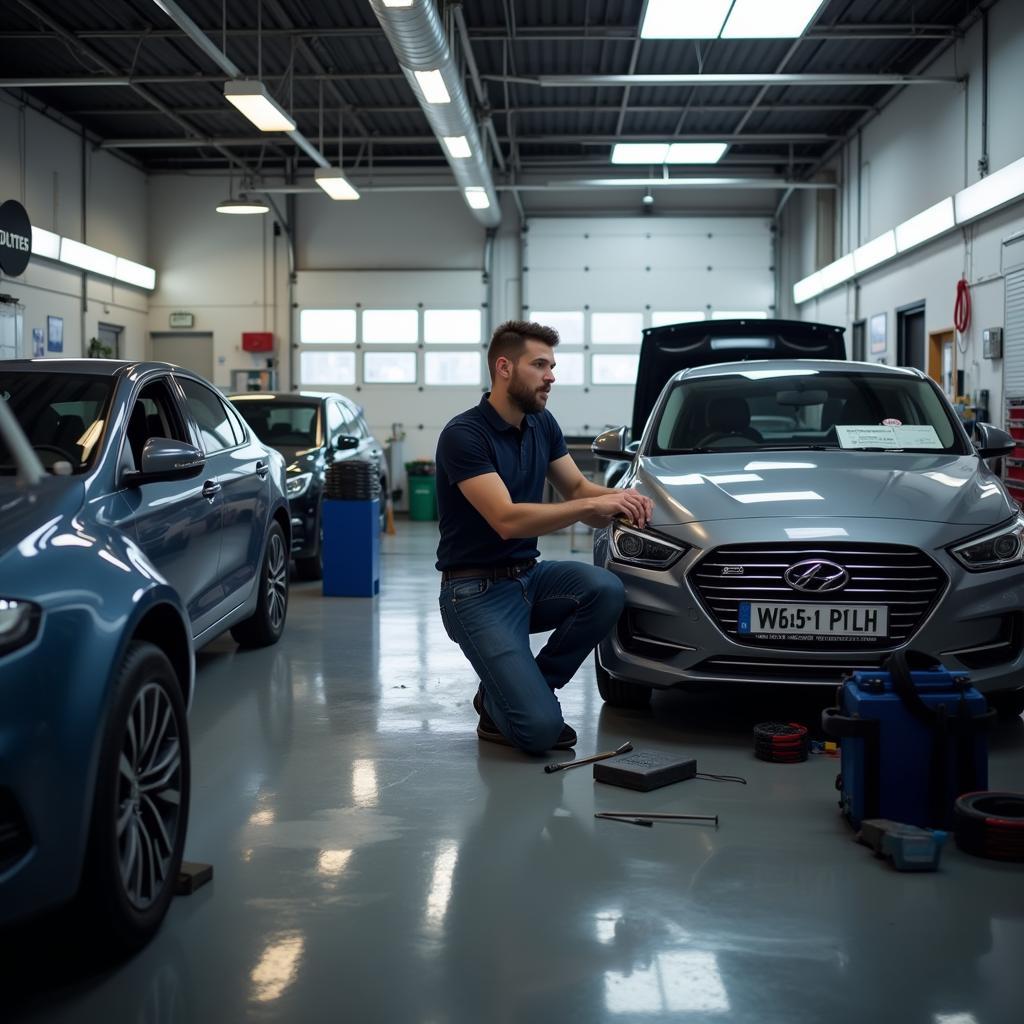Making the decision between repairing your current car and buying a new one can be a tough one. It’s a dilemma many car owners face, often involving a complex equation of cost, reliability, and emotional attachment. This article aims to guide you through that process, offering clear insights to help you make the best choice for your situation.
Weighing the Costs: Repair vs. Replacement
One of the first things to consider when deciding whether to fix or replace your vehicle is the cost of repairs. Are you constantly pouring money into your car, only to be faced with another issue a few weeks later? If your repair bills are starting to rival the cost of a down payment on a new car, it might be time to consider upgrading. However, a single large repair might still be more economical than buying new, especially if your car is otherwise reliable. Obtain multiple repair quotes from trusted mechanics. A thorough inspection and estimate from a reputable mechanic can shed light on the true extent of the damage and provide a clearer picture of future repair costs. This allows for a more informed decision.
After obtaining repair estimates, research the cost of new or used cars that meet your needs. Factor in not just the sticker price but also loan interest rates, insurance costs, and registration fees. This comprehensive approach will help determine if buying new is truly a better financial decision. Sometimes, a slightly older used car can offer a sweet spot of reliability and affordability. Consider exploring reputable used car dealerships or private sellers.
Assessing the Car’s Overall Condition: Beyond the Immediate Problem
Don’t just focus on the current issue. How old is your car? What is its overall condition? High mileage, recurring problems, and outdated safety features can all be indicators that it might be time for a change. A car with over 150,000 miles on the odometer is statistically more likely to experience more frequent and costly repairs. While a new engine or transmission might fix the immediate problem, other components could fail soon after, leading to a cascade of expenses.
Think about your car’s safety features. Does it have modern safety systems like anti-lock brakes, electronic stability control, or multiple airbags? These features are crucial for minimizing the risk of accidents and injuries. Newer cars often come with advanced safety technologies not available in older models.
Considering Your Needs and Lifestyle
Have your needs changed since you bought your current car? Perhaps your family has grown, you’ve started a new job with a longer commute, or you need a vehicle with more cargo space. A new car can better accommodate your evolving lifestyle. For example, a growing family might need a larger SUV or minivan with more seating capacity.
fixing rear view mirror to car windshield
How Long Does It Take to Fix a Car Rotor? (And Other Time Considerations)
Time is another crucial factor. How long can you afford to be without a car? If your car requires extensive repairs, it might be out of commission for weeks, disrupting your daily routine. Buying a new car, while a larger upfront investment, can offer a quicker solution and minimize disruption.
how long does it take to fix a car rotor
“Time is money, especially when you rely on your car for daily commutes or business,” says John Smith, a certified automotive technician with over 20 years of experience. “Weigh the cost of alternative transportation during lengthy repairs against the immediate availability of a new car.”
The Emotional Factor
Sometimes, there’s an emotional attachment to a car. It might be the car you learned to drive in, the car you brought your first child home from the hospital in, or the car you took on countless road trips. These sentimental values are important to consider, but they shouldn’t outweigh practical considerations. If the costs and risks of keeping the car are too high, it might be time to let go, even if it’s hard.
Should I Fix My Car or Buy a New One: The Bottom Line
The decision of whether to fix your car or buy a new one depends on a variety of factors, including the cost of repairs, the overall condition of your car, your needs and lifestyle, and the time you can afford to be without a vehicle. Weigh these factors carefully, gather all the necessary information, and make the decision that is best for you. “Remember, a car is ultimately a tool to serve your needs,” advises Sarah Jones, a seasoned automotive consultant. “Don’t let sentimentality cloud your judgment when making such an important financial decision.”
how to fix a middle car mirror
Need more help deciding? Contact AutoTipPro at +1 (641) 206-8880 or visit our office at 500 N St Mary’s St, San Antonio, TX 78205, United States. We’re here to assist you with expert advice and resources.





Leave a Reply